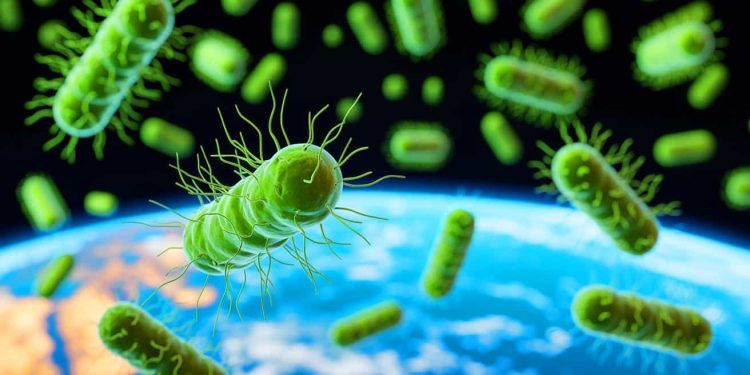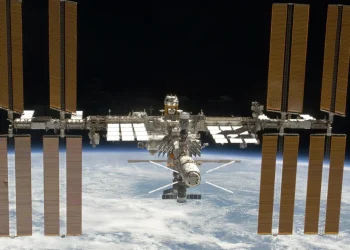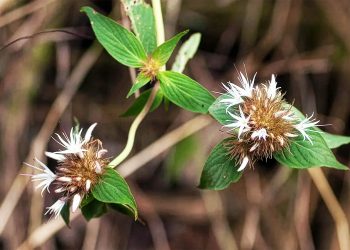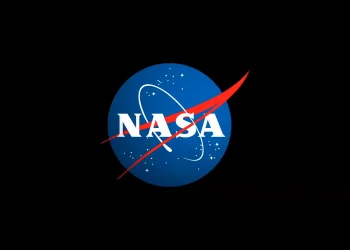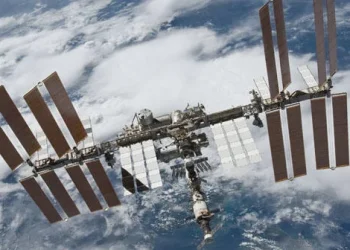| IN A WORD |
|
In a groundbreaking study, researchers have found that certain bacterial spores can withstand the harsh conditions of space travel, including intense launch forces, brief periods of microgravity, and re-entry into Earth’s atmosphere. This discovery is important for future human missions to Mars, because the survival of beneficial bacteria is crucial for maintaining the health of astronauts during extended space travel. The study, led by scientists at RMIT University in Melbourne, focused on the bacteria Bacillus subtilisknown for its vital role in human health. Their research represents a promising step toward ensuring the viability of essential microorganisms during long-duration space missions.
Importance of bacteria for long-term missions
Since the 1970s, humans have managed to spend short periods in space, but the prospect of a colony on Mars presents entirely new challenges. Microorganisms, including Bacillus subtilisare considered biological support systems essential to sustaining human life on Mars. These bacteria could play a critical role in maintaining immune function, gut health and blood circulation over decades-long missions.
An important concern is whether these beneficial bacteria can survive deep space travel, which exposes them to intense radiation and microgravity. Space radiation, including galactic cosmic rays and solar particles, poses a threat to microbial DNA, while microgravity could alter bacterial behavior, potentially affecting astronauts’ health.
In this study, the spores of B. subtilis were launched to the edge of space aboard a sounding rocket. The bacteria endured the extreme forces of ascent, experiencing up to 13 times Earth’s gravity and more than six minutes of microgravity about 161 miles above Earth. Upon its return, the rocket encountered deceleration forces of up to 30 times Earth’s gravity while rotating rapidly. Remarkably, the bacteria retained their structure and grew normally after this ordeal, indicating their potential to support the health of astronauts during extended space missions.
‘NASA Just Unraveled the Mystery of the Spider on Mars’: Scientists Recreate Half-Mile Formations Using Liquid Nitrogen While Carbon Dioxide Sublimation Sculpts Alien Channels Forever
More Experiences Required
The data obtained from this study could play a key role in the development of life support systems to keep astronauts healthy during long-duration missions. Pharmaceutical companies could also use this fundamental data for life science experiments in microgravity environments.
Gail Iles, space science expert at RMIT, highlighted the importance of understanding microbial endurance under high acceleration, near weightlessness and rapid deceleration. This knowledge can inform the development of sustainable life support systems for space travel. Additionally, the study’s insights into microbial survival limits could lead to biotechnological innovations on Earth, including the development of new antibacterial treatments and strategies to combat antibiotic-resistant bacteria.
The success of Bacillus subtilis surviving a real space launch provides a solid basis for further research. Future studies could explore the resilience of more delicate organisms, bringing humanity closer to establishing a sustainable and healthy presence on Mars. The research team is now seeking additional funding to expand life science experiments in microgravity environments, with the goal of advancing our understanding of microbial survival in space.
‘I can’t believe what I saw’: China’s first capsule escape test in 30 years ends in stunning success that changes everything
Understanding the challenges of space travel
The recent study has expanded our understanding of the effects of long-term spaceflight on the microorganisms that inhabit humans and contribute to their health. As co-author Elena Ivanova noted, the research provided valuable insights into how these bacteria resist rapid changes in gravity, acceleration and deceleration.
Space travel presents many challenges to human health, with prolonged exposure to microgravity and space radiation being among the most significant. These conditions can lead to muscle atrophy, bone loss, and radiation-induced health problems. Ensuring the survival of beneficial bacteria is essential to mitigating these risks, as they play a key role in maintaining physiological functions and supporting the immune system.
By proving that B. subtilis can withstand the rigors of space travel, this study offers hope for the development of strategies to protect the health of astronauts during missions to Mars and beyond. Continued exploration of microbial resilience in space will be crucial as we prepare for the challenges of long-term human habitation on other planets.
‘We found life on Mars’: NASA’s Perseverance rover discovers ancient microbial evidence in rock sample from Jezero Crater
Future implications for space exploration
This pioneering research marks a significant advance in our quest to understand the survival mechanisms of beneficial bacteria in space. As we prepare for longer missions beyond Earth orbit, it becomes increasingly important to ensure the stability and functionality of microbial communities.
The results of the RMIT University study have the potential to influence various aspects of space exploration, from the design of life support systems to the development of countermeasures against space-induced health problems. Additionally, lessons learned from this research could also have implications for biotechnology and healthcare on Earth, particularly in the area of combating antibiotic resistance.
As we look to the future of manned space exploration, understanding how to protect and maintain beneficial microorganisms will be a critical part of mission planning. The resilience of Bacillus subtilis offers a promising basis for new research and innovations, paving the way for a sustainable human presence on Mars and beyond.
The recent study highlighting the resilience of Bacillus subtilis in space travel is a promising development for future missions to Mars. As researchers continue to explore the survival mechanisms of beneficial bacteria in space, what other innovations might emerge to support human health during extended space travel?
This article is based on verified sources and supported by editorial technologies.
Did you enjoy it? 4.5/5 (28)


